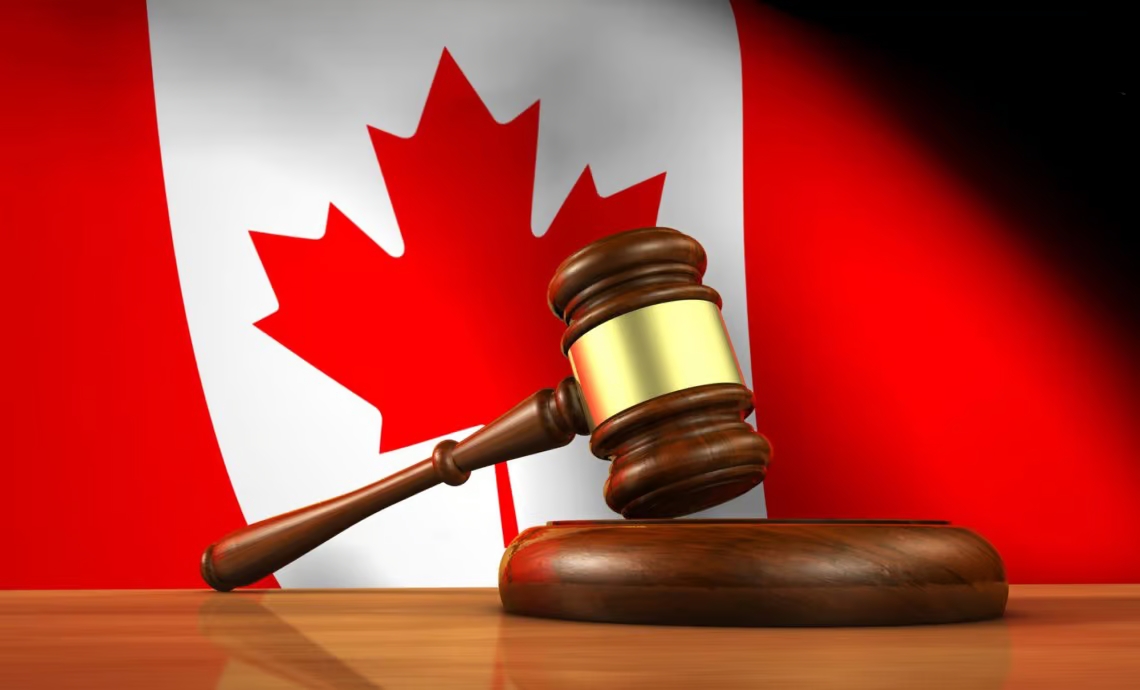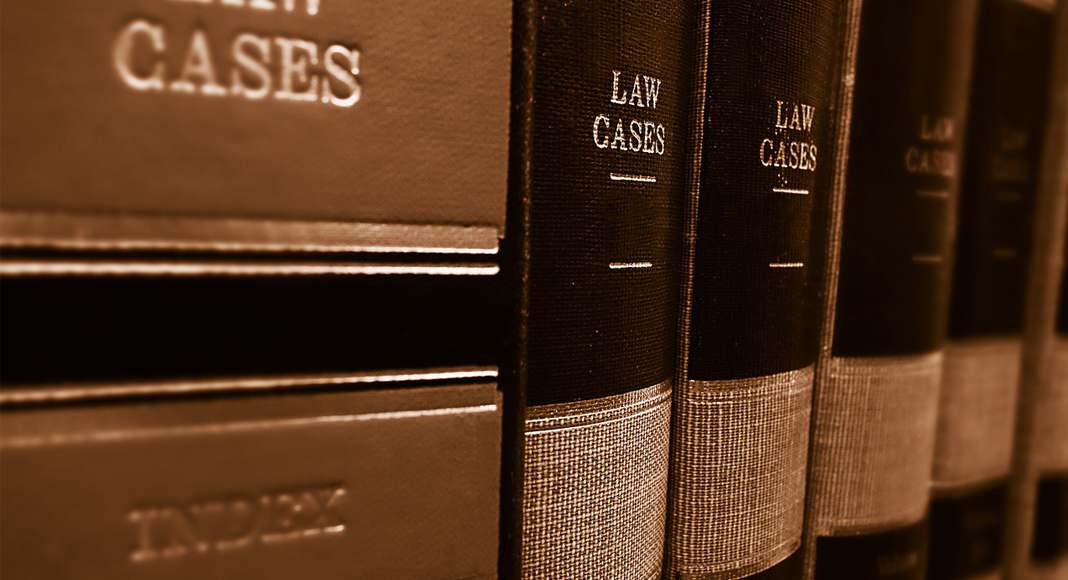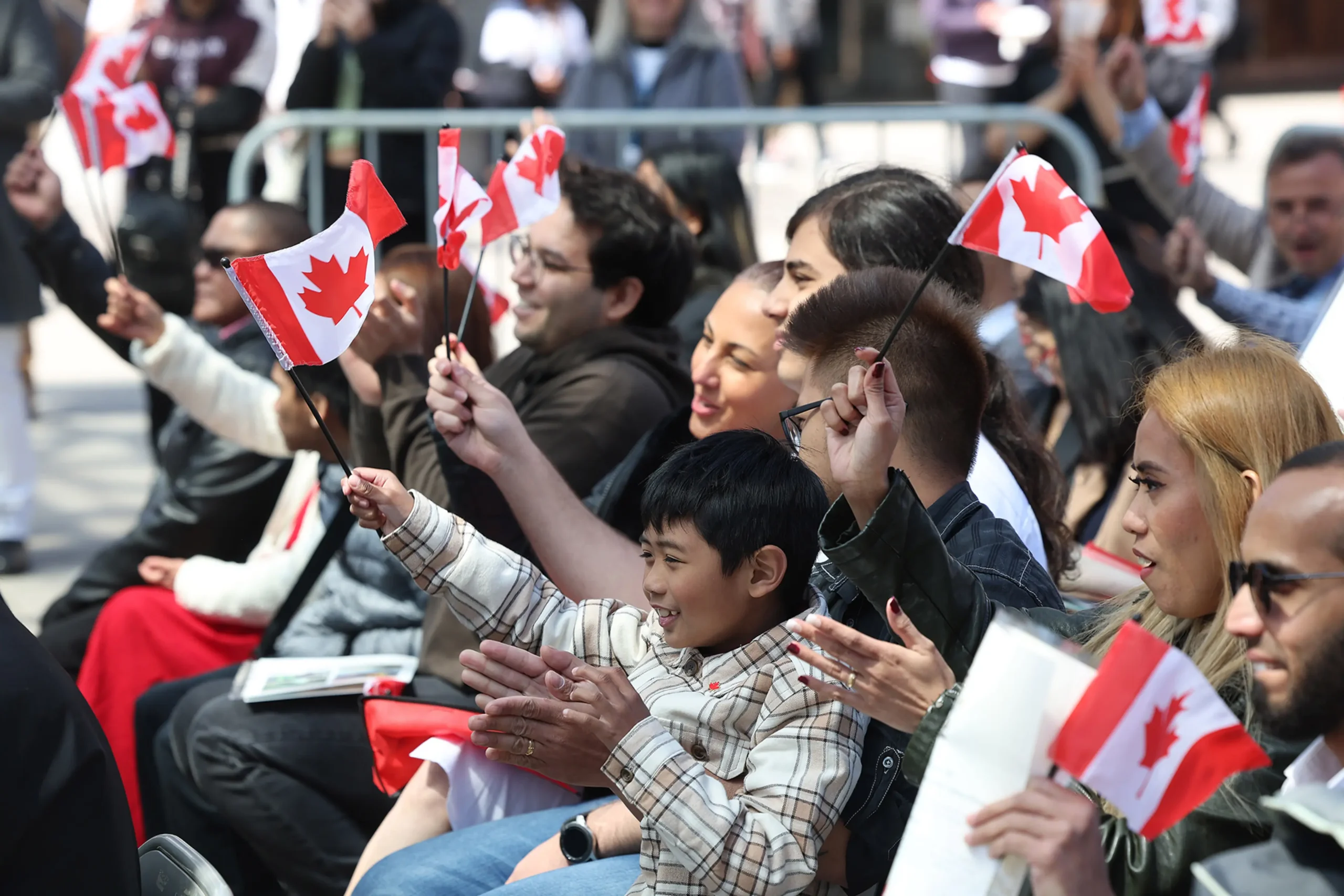What Are 10 Weird Laws in Canada? Discover the Strangest Rules Across Provinces
Canada’s known for its stunning landscapes and friendly people but it’s also home to some laws that’ll make you do a double take. I’ve always been fascinated by the quirky side of legal systems and Canada doesn’t disappoint when it comes to odd rules that still exist on the books.
From bans on certain types of pet rats to strict regulations about how you handle coins you might be surprised at what’s actually illegal in different provinces. I’m excited to share ten of the weirdest laws I’ve discovered across Canada—some are funny others just plain baffling but all of them highlight the country’s unique character.
Understanding Weird Laws in Canada

Understanding-Weird-Laws-in-Canada
Weird laws stand out across Canada for their specificity and local impact. Each province and territory introduces distinct requirements, sometimes reflecting historical moments or rare local conditions. Some examples regulate common activities, while others address quirky scenarios rarely encountered today.
Rare legal provisions often gain attention because they affect everyday life, causing confusion or amusement for residents and visitors. Many stem from old bylaws or attempts to address problems unique to particular regions.
The following table shows ten notable weird laws found in different parts of Canada:
| Law Description | Province/Territory | Notable Restriction |
|---|---|---|
| No whistling in Petrolia after 11 p.m. | Ontario | Bans noise, including singing late |
| No pet rats as pets | Alberta | Outlaws pet rats, only in labs/schools |
| No purple garage doors | Kanata, Ontario | Prohibits certain paint colors |
| No more than $5 in nickels per purchase | Canada (federal) | Limits using nickels for sales |
| No carrying snake in public | Fredericton, NB | Restricts public display of snakes |
| No attaching sirens to bicycles | Sudbury, Ontario | Bans sirens on non-emergency vehicles |
| No ice cream on Bank Street on Sunday | Ottawa, Ontario | Restricts type/day for eating treats |
| No built snow forts blocking sidewalks | Montreal, Quebec | Bans snow structures in public paths |
| No coins tossed at strippers | Toronto, Ontario | Bans coins to ensure performer safety |
| No stringing clotheslines across street | Halifax, NS | Prevents obstacles in public areas |
I base these examples on local ordinances and the Criminal Code of Canada.
Weird casino-related laws don’t appear as distinctly Canadian in the available legal materials. Regulatory frameworks govern casinos tightly, but nothing matches the eccentricity or novelty found in other unusual bylaws listed above.
What Are 10 Weird Laws in Canada?
Canada features several weird laws that highlight the country’s unusual blend of tradition and local governance. I’ve grouped examples by topic to illustrate how these strange rules affect food, vehicles, public behavior, animals, and local bylaws.
Unusual Food and Beverage Laws
Several Canadian cities enforce food-related laws that sound odd today.
- Serving Margarine: Restaurants in Quebec can’t serve margarine instead of butter by default, reflecting dairy industry influence.
- Colored Margarine Ban: Quebec banned yellow margarine until 2008 to avoid confusing it with butter.
- Beer Sales Restrictions: In Ontario, convenience stores can’t sell beer, limiting sales to government-controlled outlets.
| Law Description | Province/City | Current Status |
|---|---|---|
| Restaurants must serve butter, not margarine by default | Quebec | Enforced |
| Ban on colored margarine (yellow) | Quebec | Repealed (2008) |
| Convenience stores can’t sell beer | Ontario | Enforced |
Odd Vehicle and Driving Regulations
I’ve found peculiar car and road rules in provinces such as Alberta and Ontario.
- Dirty License Plate: Drivers in Alberta can’t have a dirty license plate; fines apply if numbers aren’t visible.
- Taxi Cab Dress Code: Toronto cab drivers must maintain a dress code, which includes banning T-shirts and shorts.
- No Hitchhiking Allowed: In Ontario, hitchhiking on certain highways is legally forbidden due to safety concerns.
| Law Description | Location | Current Status |
|---|---|---|
| Dirty license plate is illegal | Alberta | Enforced |
| Taxi cab dress code requirement | Toronto | Enforced |
| No hitchhiking on highways | Ontario | Enforced |
Bizarre Public Behavior Restrictions
Weird restrictions on actions in public spaces appear in small towns and major cities.
- Prohibited Whistling: No whistling or loud singing in Petrolia, Ontario, after 11 p.m.
- No Climbing Trees: Public tree climbing is forbidden in Toronto parks.
- Swearing Ban: Public swearing could result in fines in Taber, Alberta.
| Law Description | City/Province | Current Status |
|---|---|---|
| No whistling or singing after 11 p.m. | Petrolia, Ontario | Enforced |
| Tree climbing banned in public parks | Toronto | Enforced |
| Public swearing forbidden | Taber, Alberta | Enforced |
Strange Animal-Related Laws
Animal ownership and care also feature strange legal quirks.
- Pet Rat Ban: No one can own a pet rat in Alberta; permits exist only for scientific institutions.
- Exotic Animal Permits: Winnipeg bans snakes and exotic reptiles in residential areas without special permits.
- Cat Stray Curfew: In Oak Bay, British Columbia, cats can’t roam after sunset.
| Law Description | Province/City | Current Status |
|---|---|---|
| Owning pet rats forbidden | Alberta | Enforced |
| Exotic reptiles banned without permit | Winnipeg | Enforced |
| Cats must not be outside after sunset | Oak Bay, British Columbia | Enforced |
Outdated and Peculiar Local Bylaws
Local governments sometimes leave unexpected old rules on the books.
- Coin Payment Limits: The Currency Act sets maximum legal-tender limits for paying with coins. For example, you can’t pay a $25 bill with all pennies.
- Street Sale Ban: No person may sell goods on city streets in Montreal without a permit, dating back to rules curbing peddling.
- Watering Lawns Only on Odd/Even Days: In some BC cities such as Kelowna, residents can water lawns only on odd or even-numbered days, based on home addresses.
| Law Description | Location | Current Status |
|---|---|---|
| Coin payment limitations | Nationwide | Enforced |
| Street vending ban without permit | Montreal | Enforced |
| Lawn watering restricted by address numbers | Kelowna, British Columbia | Enforced |
Why Do These Weird Laws Exist?

Why-Do-These-Weird-Laws-Exist
Weird laws in Canada exist mainly because of historical events, evolving cultural norms, and localized concerns unique to each province or territory. Lawmakers introduced many odd rules to address specific issues that, over time, lost relevance as social attitudes and technologies shifted.
Historical Context
Legislators created several unusual laws in response to events that shaped their communities. Examples include animal bans designed after agricultural crises, coin payment limits established during periods when small change shortages were common, and prohibitions on street sales formulated to prevent disorder on growing urban streets.
Public Safety and Order
City councils and provincial governments implemented restrictions aiming to maintain safety or reduce disruptions. For instance, prohibiting whistling after 11 p.m. in Petrolia protected residents’ peace during quiet hours, while Toronto’s tree climbing ban in parks tried to reduce injury risks in public spaces.
Local Identity and Traditions
Some laws reflect regional traditions, ethics, or economic pressures that shaped local priorities. Quebec’s butter requirement and Ontario’s beer sales restrictions grew out of attempts to support local producers and uphold culinary standards relevant to residents at the time.
Table: Origins of Selected Weird Canadian Laws
| Law Example | Origin Reason | Jurisdiction | Year Enacted (if known) |
|---|---|---|---|
| Alberta’s pet rat ban | Agricultural protection | Alberta | 1950 |
| Petrolia whistling after 11 p.m. | Noise control | Ontario (Petrolia) | 1990s |
| Butter instead of margarine (Quebec) | Local industry protection | Quebec | 1987 |
| Coin payment limits (Canada wide) | Banking standardization | Federal | 1985 (updated) |
| Dirty license plates (Alberta) | Road visibility/safety | Alberta | 1983 |
| Taxi cab dress code (Toronto) | Public image regulation | Ontario (Toronto) | 1990s |
| Cat curfew (Oak Bay) | Wildlife protection | British Columbia | 1980s |
| Beer sales restrictions (Ontario) | Alcohol control | Ontario | 1927 (origins) |
| Tree climbing ban (Toronto parks) | Injury prevention | Ontario (Toronto) | 1990s |
| Street sales ban (Montreal) | Urban order | Quebec (Montreal) | 1984 |
These patterns highlight how region-specific priorities and historical events shaped the creation and ongoing existence of Canada’s weird laws.
How These Laws Impact Canadians and Tourists

How-These-Laws-Impact-Canadians-and-Tourists
Weird Canadian laws impact daily activities, business operations, and travel routines. Residents and visitors often encounter confusion, fines, or unexpected prohibition when unfamiliar with local rules.
Effects on Daily Life
- Public Behavior: Cities enforce bans—like no whistling in Petrolia after 11 p.m. and no tree climbing in Toronto parks—so people risk getting fines for harmless actions (Petrolia Town Bylaws, Toronto Municipal Code).
- Food and Beverage Regulations: Quebec’s butter law and Ontario’s beer sales rules determine restaurant menus and customer choices, altering the dining experience for both locals and newcomers.
- Animal Ownership: Alberta’s rat ban and British Columbia’s Oak Bay cat curfew restrict pet selections and animal freedoms, which surprises new residents and pet-owning travelers.
- Transportation and Vehicles: Alberta police ticket drivers for dirty license plates, while Toronto cab drivers must follow dress codes, requiring increased awareness for both residents and visitors using local taxis.
Practical Impacts on Tourists
Tourists navigating these provinces must quickly adapt behavior and buying habits. Tour drivers keep vehicles cleaner in Alberta to avoid tickets. Restaurant patrons in Quebec adjust food expectations. Pet owners research local restrictions before traveling.
Notable Legal Consequences Table
| Category | Law Example | Potential Impact |
|---|---|---|
| Public Behavior | No whistling after 11 p.m. (Petrolia) | Fines, confusion, restricted activity |
| Food Regulation | Only butter, no margarine (Quebec) | Changed dining options |
| Vehicle Law | Clean license plate required (Alberta) | Possible fines, visitor caution |
| Taxi Regulation | Taxi cab dress code (Toronto) | Service refusal, compliance concern |
| Animal Bylaw | Pet rat prohibition (Alberta) | Pet entry denied, fines |
| Animal Curfew | Cat curfew (Oak Bay, BC) | Curtailed pet movement, fines |
| Payment Law | Coin transaction limits (Canada-wide) | Refused payment, disrupted purchases |
| Street Bylaw | No street sales (Montreal) | Loss of market for vendors, limited shopping |
| Tree Climbing | Tree climbing ban in parks (Toronto) | Fine risk, park activities limited |
| Beer Sale Rule | LCBO/Beer Store monopoly (Ontario) | Shopping constraint, increased planning |
Adaptation Strategies
- Awareness: Travelers check bylaw details before visiting provinces.
- Planning: Pet owners verify animal restrictions and curfews.
- Compliance: Consumers use correct payment forms and follow public rules to avoid penalties.
- Communication: Tour operators and local businesses inform clients about unusual rules.
Locals and tourists both navigate these weird laws to avoid legal issues, adapting habits and travel plans during their time in Canada.
Conclusion
Canada’s weird laws never fail to surprise me and remind me that every region has its own colorful history and priorities. Whether you’re a local or just passing through it’s always worth checking the local bylaws before you find yourself on the wrong side of an unusual rule.
I love how these quirky regulations add character to each province and make exploring Canada a little more interesting. If you ever spot a strange sign or hear about an odd restriction it’s probably rooted in a fascinating story from the past.
Frequently Asked Questions
What are some examples of weird laws in Canada?
Canada has many unusual laws, such as a ban on keeping pet rats in Alberta, prohibiting whistling in Petrolia, Ontario after 11 p.m., and forbidding tree climbing in Toronto parks. There are also unique food regulations like Quebec’s requirement for restaurants to serve butter instead of margarine.
Why do weird laws exist in Canada?
Many weird laws in Canada were created in response to specific, historical local issues, such as public safety, agricultural crises, or to reflect cultural norms. Over time, some laws have lost their original relevance but remain on the books.
Are these strange laws still enforced today?
While enforcement varies, some of these laws are still technically on the books and can be enforced. Locals may face fines or warnings for breaking certain odd rules, whereas others are rarely acted upon and mostly provide entertainment or confusion.
How do these laws impact tourists and newcomers?
Quirky Canadian laws can affect travel plans, daily routines, and business operations. Tourists and newcomers may be surprised by pet bans, food and alcohol restrictions, or unusual rules about public behavior, so it’s important to check local bylaws before visiting.
Can tourists get fined for breaking these weird Canadian laws?
Yes, tourists can be fined for breaking local laws, even if the rules seem unusual, such as whistling at night or climbing trees in certain parks. It’s best to follow posted signs and review bylaws in the area you’re visiting.
Do all provinces in Canada have their own unique strange laws?
Yes, every province and territory in Canada has some distinctive and odd laws. These often reflect historical events, local customs, or specific regional concerns and can differ widely from one place to another.
Where can I find out about local bylaws before visiting a Canadian city?
Local government websites typically list current bylaws for each municipality. It’s a good idea to review these resources or ask local residents or businesses for advice about unique laws that might affect your visit.
How do Canadian weird food laws affect restaurants?
Some provinces have strict food rules, like Quebec’s requirement for restaurants to serve butter rather than margarine and Ontario’s restrictions on beer sales. Such regulations shape what is served in restaurants and how they do business.
Are casino or gambling laws in Canada as quirky as other laws?
Casino and gambling laws in Canada are known for being strict but are generally less eccentric than some local bylaws, focusing on regulation rather than odd or amusing restrictions.
What should pet owners know before moving to Canada?
Pet owners should check local regulations beforehand, as certain animals like pet rats are banned in some provinces (such as Alberta), and others have curfews or special requirements for animals like cats. Always review specific rules for your destination.
